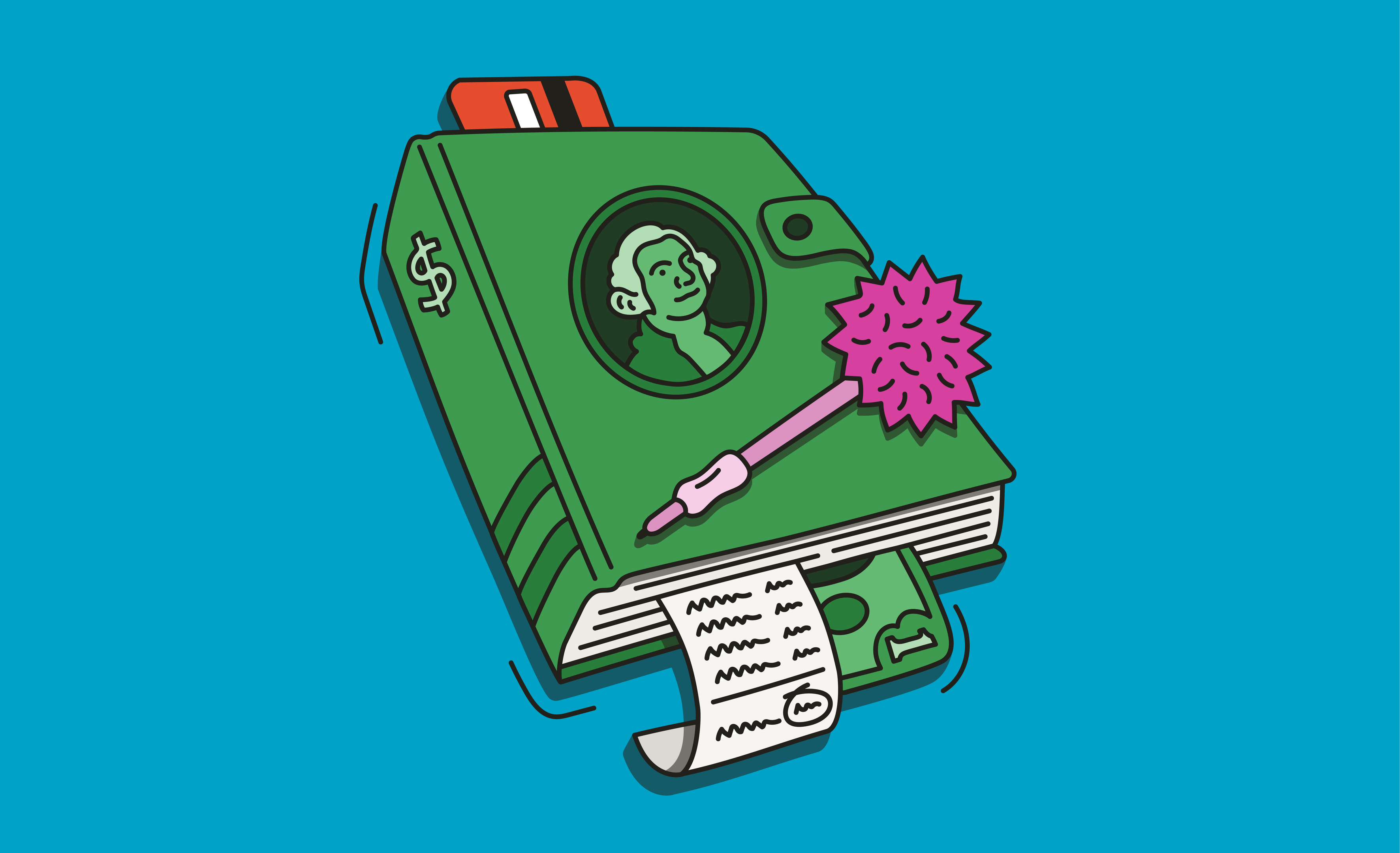Math and numbers may be rational, but money rarely is.
“Money is always emotional,” shared Christian Broyhill, licensed professional counselor and founder of NextGen Journeys, a company that seeks to bring important conversations regarding mental health and resiliency into family-owned businesses. “Whenever we are sitting down to manage our finances, we are always bringing in our own personal narratives.”
These narratives and the feelings they trigger can cause you to interact with money in ways that don’t ultimately support your financial goals or wellbeing.
That could show up as shame because of experiences like major debt in your past or narratives you were told as a child about "not being good at math" and therefore are unqualified to manage your money. It could be fear of scarcity from growing up poor or having a past experience of sudden job loss.
“If your past experiences around numbers, math, money, worth, or security, have a negative aspect to them, you might interact with money from a place of hyper vigilance and that might lead to a compulsive behavior or to avoidance,” explained Chantel Chapman, CEO & Co-Founder of financial literacy program Trauma of Money. For instance, research has found that financial shame can lead people to avoid important financial information and disengage from seeking solutions to their financial problems, increasing the probability of counterproductive financial decisions that deepen financial hardship.
This can also create conflict when managing finances with partners, where each person is bringing different money stories, experiences, and emotions to the table.
If this sounds at all familiar, we’ve got good news: We chatted with Christian and Chantel to learn their advice for ways to face these emotions head on and start to work past them.
How to overcome difficult emotions around money
1. Start from a place of curiosity
Both Christian and Chantel agreed that one of the best first steps when encountering a sticking point around money is to get curious about where it’s coming from.
“We’re taking a bit of an inventory,” explained Chantel. “What's the behavior that's unhelpful, what are some of my thoughts and feelings and emotions that arise around this behavior, and where is it coming from?” Consider generational, relational, societal, and systemic influences that could be shaping your mindset in this moment.
Christian also encourages people to ponder the “unwritten rules” that impact how they approach money and where those rules originated from. She shared the example of a couple she recently worked with who were arguing about whether to hire someone to help clean their house. When she dug into what the resistance to hiring help was really rooted in, they realized they grew up with family values around hard work. With that information, they could decide whether those values still felt important to them.
While you can use these questions as a mindfulness strategy in the midst of a triggering moment, Christian shared that it’s even better to work through them outside of the context of a budgeting meeting or intense financial conversation. This way, you can walk into future conversations with a better understanding of what topics might require more gentleness.
“Once you understand that about someone, it creates a level of compassion around your partner's behaviors,” said Chantel.
2. Identify strategies for regulating your nervous system
While many people turn to financial literacy as the solution to their money stress, Chantel says that nervous system literacy is a more foundational tool.
“You are a human being with a nervous system and feelings that really drive money decisions. Your nervous system being regulated is going to give you way more choice,” she explained. When your body isn’t in a state of panic, you’re better equipped to make decisions based on your values and goals, and to engage with financial literacy.
Chantel suggests starting to notice signs that your nervous system might be activated.
“Is my heart beating really fast? Am I sweating? Am I feeling nauseous? Do I feel a tension in my chest?” Sometimes just naming these things can help you calm down — other people may find regulation practices like deep breathing, going outside, or calling a friend and having a laugh to be necessary.
Christian added that it can be helpful to plan something fun or relaxing after a financial task, such as friends of hers who have a “finances and fondue” meeting. “They always melted chocolate and dipped things into it at the end of their monthly finance meeting,” she said, sharing how it gave them a sense of relief after doing a hard thing together.
3. Create boundaries around difficult financial conversations or tasks
Christian likened boosting your distress tolerance around money to healing from an injury.
“After busting your knee you’re not going to go run a marathon,” she explained. “You’re going to walk a little bit and see how it feels and retell your body that it’s safe enough to emerge.”
Similarly, she recommends looking for ways to create boundaries around financial tasks that bring you stress.
For example, she knows that she has stress, avoidance, and shame around opening bills. So, instead of trying to force herself to face that every day (and just ending up with more avoidance and shame), she has someone come over once a month and sit with her while she opens her mail.
“It sounds really silly, but I’ve had to create a structure for myself,” she shared.
For couples, she recommends putting a regular finance meeting on the calendar so you can be mentally prepared for it, and having a system of flagging your emotional needs during those conversations.
“Almost like green light, yellow light, red light,” she said. “What are going to be my signs that I’m getting activated and that I’m not going to be able to be impartial about this topic, and how will I know when we need to stop?”
4. Consider getting support
Finally, there’s no shame in getting a little help. “Sometimes we might just need a third party who can sit with us from a neutral space,” Christian said. That may be a counselor or could be a financial coach or advisor. “I hired a budgeting coach who really helped me structure some things that worked well for my life from a shame-free perspective,” she added.
In particular, if you notice extreme anxiety, intrusive thoughts, avoidant behavior, and negative shifts in cognition in mood, you might be dealing with a clinical trauma response.
“If you're noticing you’re experiencing symptoms from all four of these categories and it's impacting your ability to function on a daily level, you might be experiencing PTSD,” Christian shared. If that’s the case, it could be valuable to seek therapy or work with someone who is trauma informed rather than trying to tackle these issues on your own.
(Still looking for help? We suggest the Financial Therapy Association Directory.)







